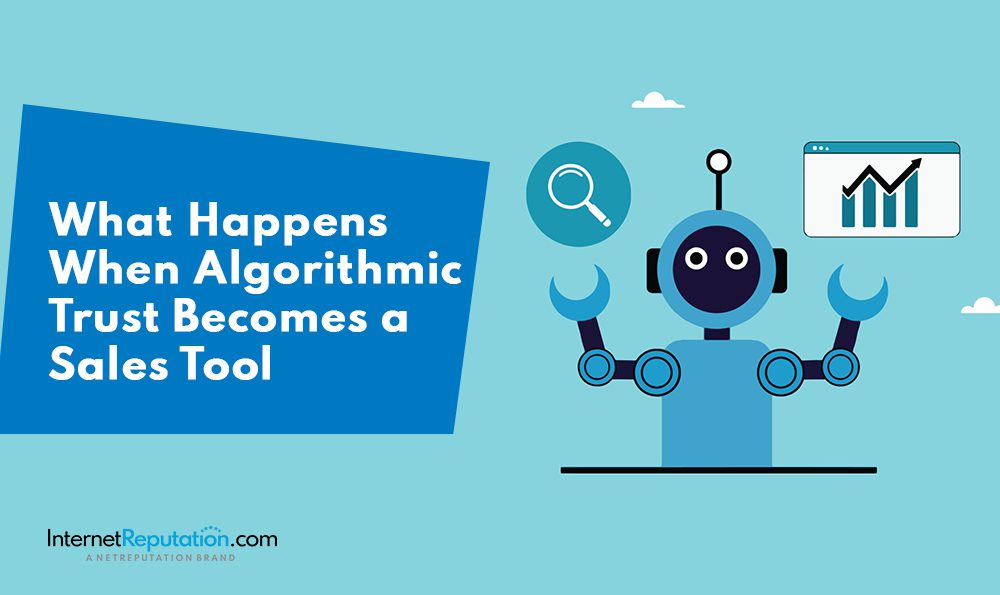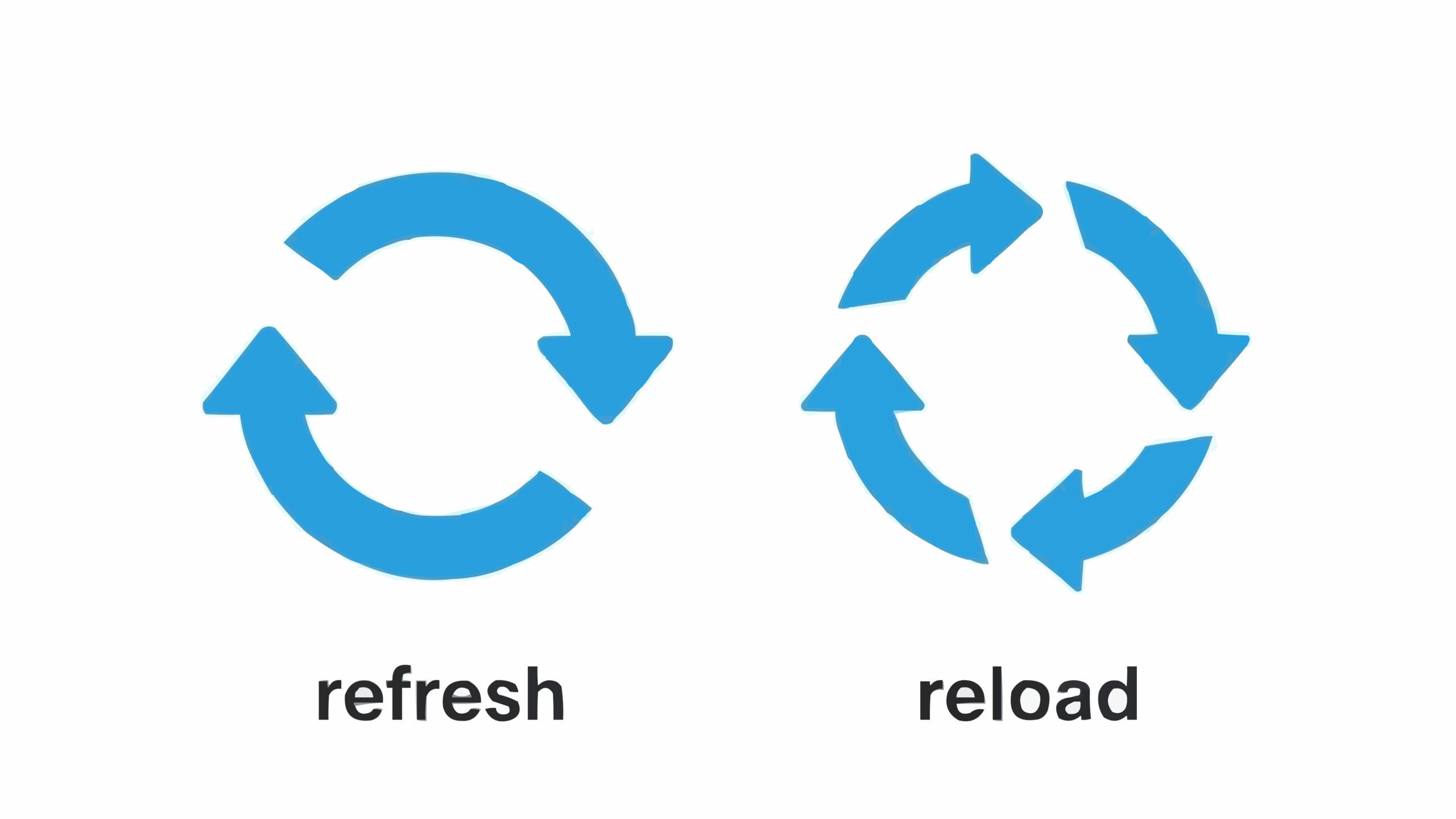What Happens When Algorithmic Trust Becomes a Sales Tool

In a world where screenshots go viral and every sales interaction can become a public review, your sales process isn’t just about conversions anymore — it’s about credibility.
Today’s buyers expect speed, personalization, and transparency — often delivered by AI-powered systems working behind the scenes. However, when those systems misfire, become robotic, or flood inboxes with irrelevant follow-ups, the fallout isn’t just lost revenue. It creates public backlash, damages online reputation, and erodes trust over time.
That’s why algorithmic trust — the confidence users place in tech-driven decisions — is quickly becoming one of the most powerful (and overlooked) tools in modern sales strategy and brand reputation management.
What Is Algorithmic Trust—and Why Does It Matter for Sales and Reputation?
Algorithmic trust refers to the extent to which people believe in the recommendations, responses, and processes generated by sales tools, customer relationship management (CRM) systems, and AI-driven platforms. These systems now guide nearly every stage of the sales journey — from lead qualification to follow-up timing to content personalization.
When your AI engagement platform works well, it’s not just more efficient — it’s more human. It delivers relevant messages, sends timely nudges, and avoids common missteps. These benefits all reflect positively on your brand.
Reputation isn’t just about what’s said in marketing — every automated response shapes it. Every avoided delay and every intuitive follow-up matters. That’s the quiet power of algorithmic trust: it can make your sales team appear smarter, faster, and more customer-centric than ever before.
How Algorithmic Trust Transforms the Sales Cycle
Sales professionals are increasingly relying on AI-powered tools to automate manual data entry, enhance performance, and gain access to real-time customer insights. These tools help sales teams identify pipeline bottlenecks, automate routine tasks, and personalize messaging using previous interactions.
For example, CRM software like Salesforce or HubSpot automatically logs customer calls and sales activities. Sales intelligence software identifies patterns in customer interactions and provides sales representatives with valuable insights. AI-powered engagement tools deliver timely prompts to follow up with leads, improving the likelihood of closing deals.
These innovations shorten deal cycles, enhance lead management, and increase sales efficiency. More importantly, they simplify the buyer’s journey and provide a trustworthy experience. When shared through reviews or social media, these interactions become part of your brand’s online reputation.
Reputation Is the New Referral
As more of the sales process occurs online, reputation has become a vital sales driver. Prospects search company names, read reviews, and examine employee profiles long before scheduling a call. If your sales team employs high-pressure tactics, fails to follow up, or provides inconsistent information, your reputation and revenue will suffer.
On the other hand, companies that use AI tools to streamline workflows, personalize communication, and deliver relevant messages earn a reputation as responsive and customer-focused brands. These companies close more deals, retain more clients, and consistently appear in search engine results with positive feedback.
For example, lead generation tools qualify prospects before outreach, minimizing spam. AI agents offer 24/7 support, ensuring a consistent customer experience throughout the journey. Sales platforms that connect with customer success teams simplify onboarding and prevent potential reputation damage.
These systems enhance metrics such as forecast accuracy and team performance. They also help businesses avoid errors that often lead to online criticism. Today, internal CRM behavior can quickly become public via Trustpilot, Reddit, Glassdoor, or Google reviews. One bad sales interaction isn’t just lost — it’s broadcast.
Sales Tools and Reputation Management: A Unified Strategy
To remain competitive, revenue leaders must strike a balance between operational efficiency and external reputation. Choose sales tools not just for pipeline growth or smooth integration, but for their ability to support brand tone, values, and customer experience.
Start by auditing your CRM and engagement tools. Do they log customer interactions automatically? Do they flag negative experiences and alert your success team?
Then connect customer data to sentiment analysis. Utilize AI to monitor feedback, identify churn risk, and resolve issues before they affect public perception.
Automation should support, not replace, human interaction. AI can handle repetitive tasks, but trust still relies on empathy and genuine human interaction. Train sales reps to represent your brand voice and handle messaging thoughtfully. Every phone call, email, and post has an impact on brand perception.
Track online reputation metrics in sales performance reviews to enhance sales performance. Recognize and reward reps who foster strong relationships, earn positive reviews, and resolve concerns with professionalism.
Using Algorithmic Trust to Turn Customer Data into Advocacy
AI-driven sales platforms provide predictive insights that go far beyond conversions. They help teams understand what matters most to customers — insights that guide marketing, content, and PR.
For example, if your CRM shows positive sentiment around fast onboarding, use that data to request reviews, build case studies, and boost your public image. Conversely, if support calls reveal confusion about a product, flag it for marketing or reputation teams.
This loop, where insights influence messaging and service, turns algorithmic trust into a reputation asset.
The Reputation Risks of Bad Data and Over-Automation
Despite the upside, over-reliance on automation can backfire. Poorly tuned tools result in irrelevant messages, impersonal outreach, and mistakes that erode trust.
Reputation risks include outdated automated follow-ups, inconsistent messaging across teams, or robotic interactions that end up online as negative examples.
Faulty integrations and unreliable automation also lead to missed deadlines or lost deals — outcomes that can ruin reputations even faster than revenue.
The Future: AI-Powered Sales Tools That Build Trust by Design
Future sales tools will go beyond pipeline management. They’ll become trust engines, designed to manage customer relationships and protect your reputation.
Expect tools that flag negative sentiment early, unify sales and support communication, offer transparent automation options, and use predictive modeling to reinforce brand credibility.
Winning companies won’t just have the best sales reps. They’ll have tools that deliver not just results, but experiences customers share positively.
In a world where every sales touchpoint can be reviewed or recorded, algorithmic trust isn’t just a conversion tool — it’s your most powerful asset in reputation management.


